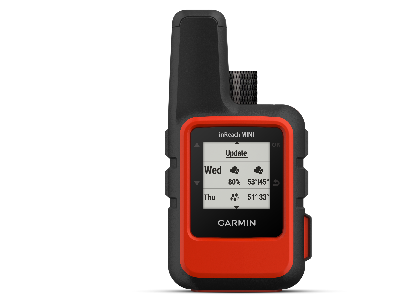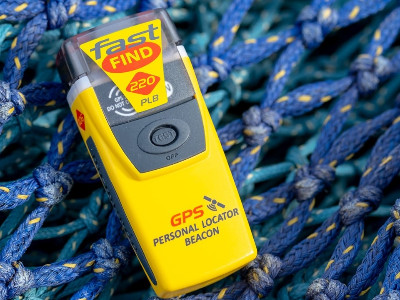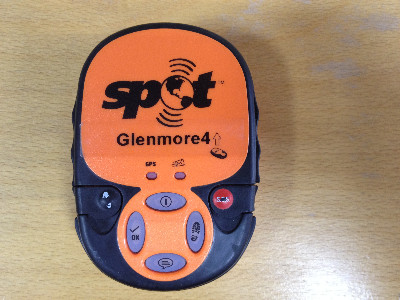Particularly useful for lone travellers, an emergency beacon is a small, hand-held device which can send out an SOS signal in the event of an accident, giving rescue services an exact location. Because they operate using satellite technology, they will work where there is no mobile reception.
Once activated, the beacon will trigger a homing signal providing an accurate fix on your position. The position of the activated beacon is sent to GEOS Worldwide based in Texas, a professional 24/7 global monitoring center. If the beacon is UK registered, your information is then passed to the Aeronautical Rescue & Control Centre (ARCC) Fareham on the South Coast. ARCC will then research registered contact details for the activated beacon and if necessary, mobilise rescue personnel to the location the beacon has been triggered. Registration for beacons is required by law.
The big advantage emergency beacons have over mobile phones is that they do not rely on being within ‘line of sight’ to a mobile phone transmitter. If the unit has an uninterrupted view of the sky, then the beacon will work.
There are different types of emergency beacon, offering different levels of service. Some are outlined below.

Garmin inReach (GPS Map 66i/86i& InReach mini)
Be aware that for these beacons to operate, after the initial cost there is also a monthly payment plan which varies depending on functionality required and whether you choose to activate usage on an annual basis or for ad hoc trips.
With inReach satellite technology from Garmin and a satellite subscription, you can stay in touch globally. You can send and receive messages, navigate your route, track and share your journey and, if necessary, trigger an SOS to get emergency help.

McMurdo Fastfind Personal Locater Beacons
This is a one-off payment: no annual or monthly payment plan required. But it is also a ‘one hit wonder’, with only one function: when triggered it will transmit the location of the unit to the emergency services. An updated version is being launched in 2020 incorporating ‘Return Link’ function. The new model will incorporate a blue light to indicate that your beacon signal has been received and help is on its way.

SPOT Gen3 Satellite GPS Messenger
Although the initial low purchase cost is an attractive option, the service plan could prove expensive, depending on which functions you wish to use.
SPOT Gen3 is a satellite personal tracking and messaging device. The tracker allows you to keep in touch with friends and family and call for help in the event of a life threating emergency. When you're on the move, the SPOT Gen3 can transmit your GPS coordinates from as little as every 2.5 minutes so you can share your adventures in near real-time.
It is the law that you register your emergency beacon. Ensure you complete the free registration card which comes with each beacon, giving details of a nominated person/s who will be contacted in the event of the beacon being triggered.
Don’t activate an emergency beacon unless it is a genuine life-threatening emergency. A huge amount of time and resources will be allocated by the emergency services responding to an activated beacon.
Do not move from your location once you have triggered your beacon. Remember that once the beacon signal has been sent (Fastfind & ACR ResQlink), there is no way of retracting it, or sending further information. Staying put allows the unit to refine details of your position as satellites pass over. Otherwise the emergency services may have difficulty finding you.
Ensure your beacon is in a position where it has a clear view of the sky to maximise its potential of being ‘seen’ by passing satellites.
Once activated, do not switch off. Your beacon will continue transmitting your location information until the emergency services arrive.
And finally, most beacons triggered in the UK are false alarms that waste a huge amount of time, money and resources. The danger of false alerts diverting search and rescue resources from genuine incidents should always be borne in mind.